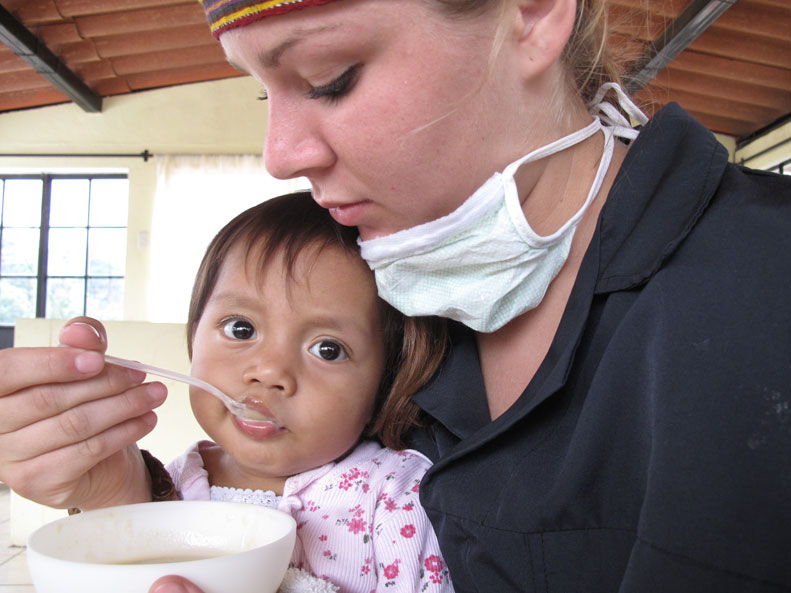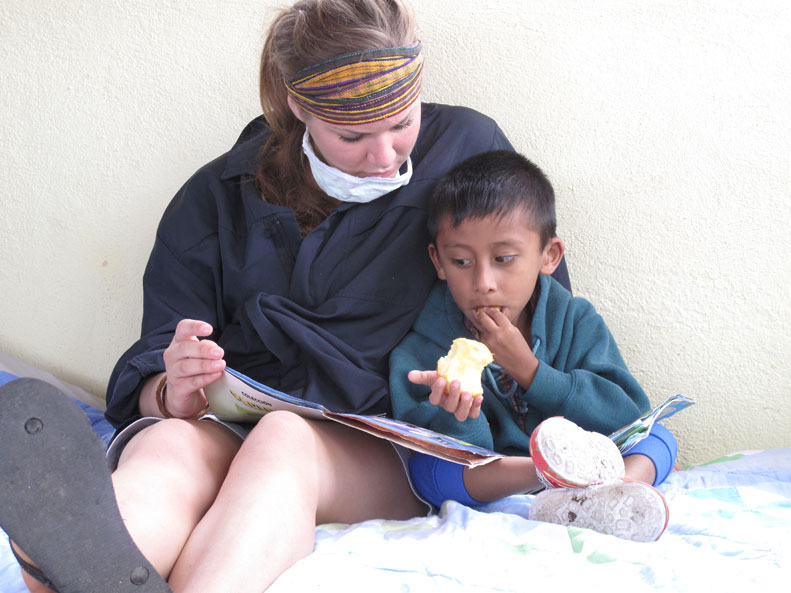
As of 2002, the infant mortality rate was at 44 per 1,000 births while the under-five mortality was 59 per 1,000 births. In
conjunction with proper nutrition, many children are affected by
illnesses that could have otherwise been prevented with an adequate
daily diet. Over 50% of the deaths of young children are
caused by infectious diseases such as malaria, diarrhea, pneumonia, and
the measles, all diseases that can be easily fought with good nutrition
and medical resources.
spent a day with Liz at Casa Jackson to help report on her volunteering
role there. It is quite demanding with feedings every two hours and
consequently many diapers to change. The shift lasts from 10 – 5 with
a short packed lunch inbetween. The kids are fun to play with and love
any one on one attention they can receive.

welcoming atmosphere includes a fully-equipped medical clinic, kitchen,
dining room, living room, office, store room, laundry facility, and
garden.
third story opens to a roof terrace where volunteers spend time
interacting with the in-house patients as well as tending to a rooftop garden that is used as both an educational example to the children and
a ready supply of fresh vegetables to the center. Children
who are old enough, help water the gardens and are taught that just as
plants need proper nutrition to grow, their bodies also need the same
care.








